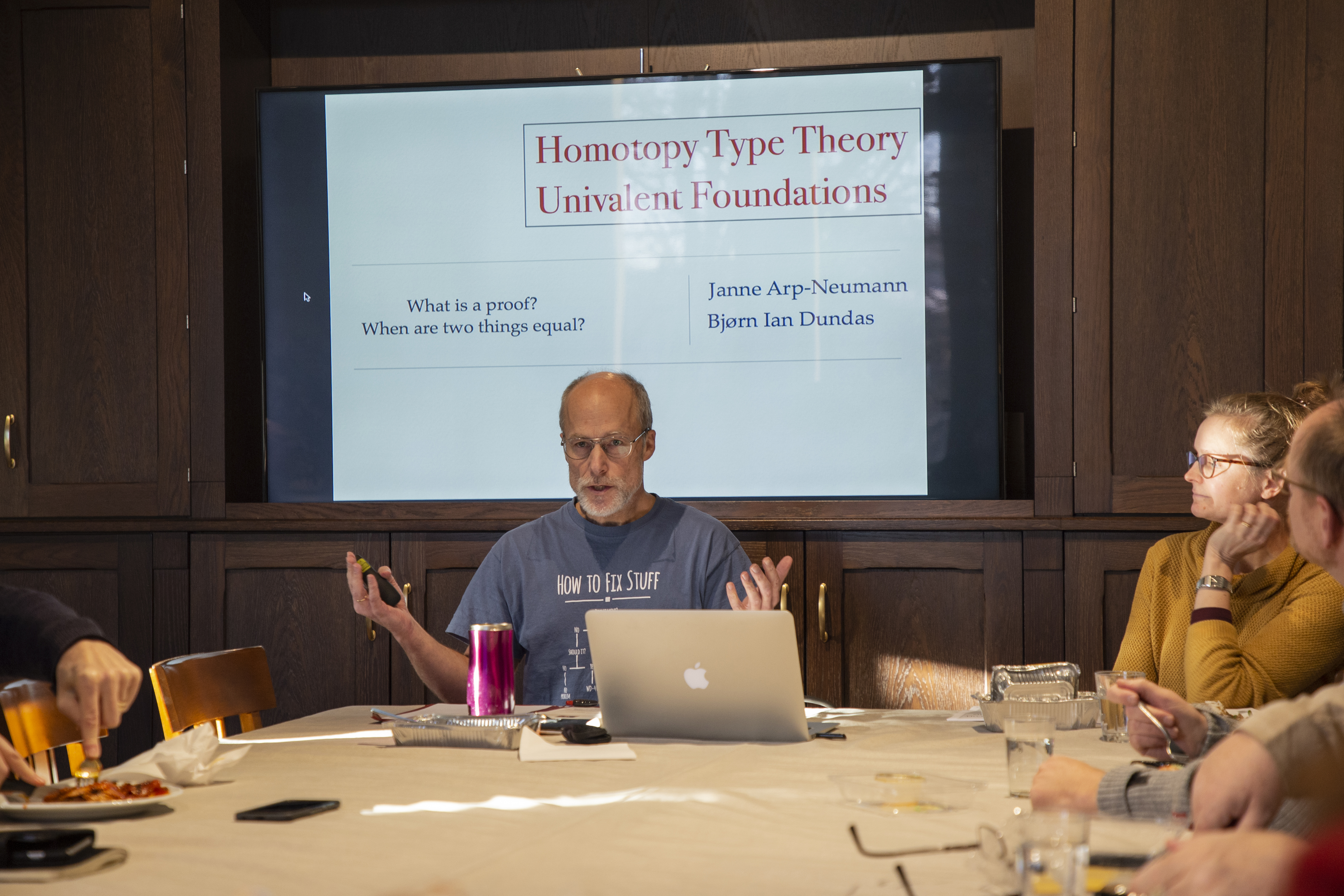Alumni Spotlight: Bjørn Ian Dundas

This month, Dundas attended his first meeting as a member of the CAS Board of Directors, and his interview with the 2021 Abel Prize laureates was published.
We spoke with the professor about his time at CAS, his participation on the CAS Board of Directors and this year’s Abel Prize interview.
Back in 2018-2019 you led the CAS project Homotopy Type Theory and Univalent Foundations together with your colleague Marc Bezem. What do you remember best from your stay at CAS?
I best remember the spring mornings, strolling to CAS with the first rays shining through the lush foliage outside the Russian Embassy and climbing the steep back door stairs thinking about what fun things we’d do today. I wasn’t as good at pushing away other duties as I wish I had been, but still, I was pretty good. Then, one by one, watching the Centre fill, small issues being resolved there and then, and perhaps joining a spontaneous group trying to solve this or that problem.
And the red evening light shining through the skylights after a walk along the shore and a quick dinner. I spent inordinate amounts of time in that office—but I mostly remember the light.

In what way did the year at CAS affect your research career, and how has the research project evolved after the year at CAS?
Just a few weeks ago, I had a flashback: We had a small workshop (paid by the CAS Alumni Fellowship—thanks a lot!), and five of us spent three days in one room trying to get the book we are writing a bit less unfinished. It’s a project we initiated at CAS, and sitting together writing brought back fond memories. Unfortunately, not everyone could come, but I’m already looking forward to the next installment. No setup, be it Zoom, GitHub or email can replace the wonders of sitting close to one another when working on the same thing.
No setup, be it Zoom, GitHub or email can replace the wonders of sitting close to one another when working on the same thing.
Together with mathematician Christian Skau you conducted the annual interview of this year’s Abel Prize laureates. What is exciting about this year’s winners, Avi Wigderson and László Lovász?
- Watch the recently published Abel Prize 2021 interview here.
Lovász and Wigderson are exponents of an important interplay between mathematics and computer science in a way almost complementary to our CAS project.
Simplifying much too much, you can say that we’re interested in the question of whether you can be sure that something is right, and they are interested in how efficiently you can show it. They ask questions like ‘Do probabilistic methods speed things up?’ (surprisingly the answer is ‘No’—with qualifications) or ‘Can you factor polynomials quickly?’ (surprisingly the answer is ‘Yes’—at the same time all our crypto systems rely on the hope that factoring numbers is hard!). Lovász and Wigderson display how wonderfully computer science and mathematics intertwine, each enriching the other.
Lovász and Wigderson display how wonderfully computer science and mathematics intertwine, each enriching the other.
You were earlier this autumn appointed a member of the CAS Board of Directors. What perspectives do you bring to the Board?
CAS is such a fantastic institution. I almost can’t believe that we have such a thing! Seeing the applications from all fields of science that can benefit from a year at CAS is very rewarding. When working for the Norwegian Research Council I only got to read the applications from natural science. This is already providing interesting perspectives.
This process is different from chatting with one’s friends in the humanities or social science where there is a give and take, and where the speaker adjusts to the experience of the listener (this was one of the great things about the lunch seminars at CAS). I take it as an opportunity to widen my perspective, but at the same time I have to remind myself that I don’t know what I’m talking about (and so, perhaps, should rather listen).
What advice would you give to future CAS project leaders?
First and foremost: enjoy it while you can. But also: be part of the team! I was not good enough at that—I often acted like a consultant on too many things, not getting really immersed in any one project. It’s fun at the time—you feel very useful!—but it would have been better on a personal level if I had developed a more thorough ownership of more processes.
- This interview was first published in our monthly newsletter. Sign up here.